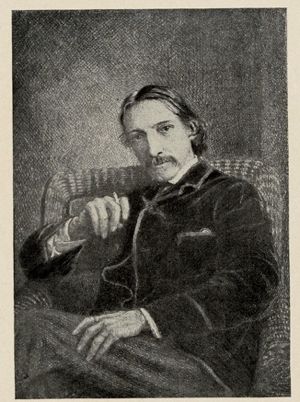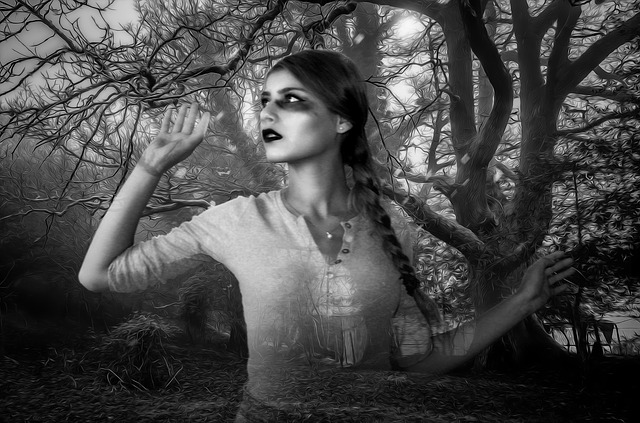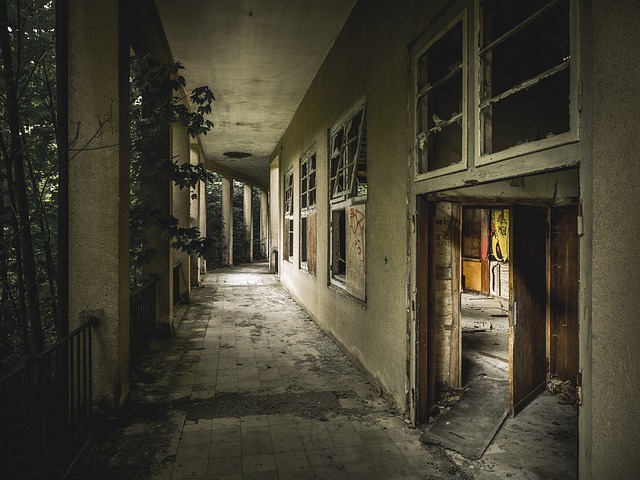When I was a kid, I used to wake up, terrified, on the floor in my room.
After I realized where I was, I would experience a flood of relief, followed by an intense fear of going back to sleep.
I could remember my nightmares vividly, vicious, violent experiences where I was chased by strange people and threatened with knives and machetes and trapped and unable to move while someone raised an ax above my head.
I knew from experience that if I went back to sleep too soon, without shaking my brain out of its negative funk, I’d go right back into the scene I had left where I feared the ax (or whatever) would actually separate me from my head or my leg or some other crucial body part.
I’d get up and go into my mother’s room. Of course, she’d be asleep. I wouldn’t want to wake her, but I would be too scared to go back to bed, so I’d stand there by the foot of her bed, stuck in indecision.
Mom always did me a great favor by waking up. Somehow, she felt my presence. (She later told me that my nighttime visits would startle her awake—sorry, Mom!) A short talk with her would help me feel better, and I’d eventually go back to bed.
My nightmares became less frequent as I grew older, but I continued to have them now and then, and they were just as terrifying as they’d always been. Sometimes I consoled myself with the thought that at least they contained imaginative ideas I could potentially use in my writing one day. (Hey, it worked for Edgar Allen Poe.)
But after one particularly bad one from which I woke up with my heart slamming in my chest, I wondered:
Are nightmares a good or bad thing for writers?
Famous Books Inspired by Nightmares
 There’s no doubt that nightmares have inspired some great literature.
There’s no doubt that nightmares have inspired some great literature.
Frankenstein was said to have come from one of young Mary Shelley’s nightmare after a night spent with Lord Byron reading ghost stories.
The Strange Case of Dr. Jekyll and Mr. Hyde was inspired by Robert Louis Stevenson’s graphic nightmares. Many of Edgar Allen Poe’s works are believed to have stemmed from his troubled nightmares, as were those of H. P. Lovecraft.
Misery came from a nightmare Stephen King had while on a flight to London. Others include H. G. Wells’ 12 Stories and a Dream, especially the last story, A Dream of Armageddon, and Julia Slavin’s Carnivore Diet.
I’m sure there are many more. So we have good evidence that sometimes, our nightmares can be put to good use. We also have really good evidence that nightmares are linked to creativity.
Link Between Frequent Nightmares and Creativity
If you’ve been plagued by nightmares for much of your life, here’s the good news:
It may mean that you’re naturally creative.
A number of studies have linked the two. Back in the 1980s, The New York Times reported on research that indicated nightmare sufferers may have a natural tendency to gravitate toward the arts, and that there appeared to be a link between nightmares and creative vision.
Dr. Ernest Hartmann, a sleep researcher and professor of psychiatry at Tufts University School of Medicine, and Dr. Bessel Van Der Kolk, a psychiatrist at Harvard Medical School, researched 50 individuals in the 1980s who reported having at least one nightmare per week in childhood.
These nightmares were similar to mine, and involved being chased, threatened, or hurt by an attacker. They were almost always in color, and included “other especially vivid sensations including pain, which is rarely experienced in ordinary dreams,” the Times reported.
Most of the participants also described themselves as “unusually sensitive since childhood: easily hurt, particularly responsive to the feelings of others, unhappy as children even though there were no overt family problems.”
The researchers described them as having “thin boundaries,” a certain vulnerability that allowed them to be more affected by the world around them.
Hartman wrote:
“I am suggesting that one important aspect of what makes a person an artist is having a psychological makeup of thin boundaries, which includes the ability to experience and take in a great deal from inside and outside, to experience one’s own inner life in a very direct fashion, and (sometimes an unwanted ability) to experience the world more directly, more painfully than others.”
A later 1991 study also suggested a link between frequent nightmares and creativity, and in the Encyclopedia of Creativity by Steven R. Pritzker and Mark A. Runco, the authors note that while the link between creativity and nightmares remains uncertain, a survey of college students found that art majors reported having the most nightmares, and that students with frequent nightmares report more visual imagery upon awakening.

People Who Have Nightmares Tend to be More Creative
The studies on nightmares have continued into the 2000s, and in 2003, another reported a link between them and creativity.
Researchers looked at personality traits and dream recall, and found that people who were more likely to be imaginative and to indulge in daydreaming and fantasizing found it easier to remember their dreams—good and bad.
The researchers drew parallels between how these people experienced the world during the day and night.
“People who are prone to daydreaming and fantasy have less of a barrier between states of sleep and wakefulness and seem more easily to pass between them,” researcher David Watson, professor of psychology at the University of Iowa, said in a press release.
In 2016, researchers again reported that nightmare sufferers seemed to have a tendency to be more creative:
“NM [nightmare] sufferers may access broader than normal emotional semantic networks in the wake state, a difference that may lead to this group being perceived as more creative.”
Lead researcher Michelle Carr also noted that these people tended to think more “out of the box” on word-association tasks—and they also have more positive dreams than the normal person. She told New Scientist:
“The evidence points towards the idea that, rather than interfering with normal activity, people who are unfortunate in having a lot of nightmares also have a dreaming life that is at least as creative, positive and vivid as it can be distressing and terrifying.”
You may find some consolation in the fact that your nightmares may be related to your creativity. But there may be more good news—nightmares may actually be, in some ways, good for you.

When Nightmares Can Be Helpful to Writers
There are a number of theories about what causes nightmares. Here are just a few of the possibilities:
- Past trauma
- Stress in life
- Medication side effects
- Disruption in the nervous system
- Degenerative diseases like Alzheimer’s
- Withdrawal from alcohol or drugs
- Depression
- Insomnia
Particularly when related to trauma, nightmares may be beneficial, according to some research, as long as they don’t continue on indefinitely.
“Nightmares are a replay of a traumatic event,” said Michael Nadorff, assistant professor of psychology and sleep behavior medicine specialist at Mississippi State University, “so it is kind of like your body’s own exposure therapy.”
He goes on to say, though, that after three months, if someone is still having nightmares about the event, they are no longer helpful.
Some psychologists believe that nightmares can be helpful warnings to us, that something in our lives needs tending to.
“Nightmares can be extremely distressing for people,” says Dr Alex Lukeman, the author of Nightmares, How to Make Sense of Your Darkest Dreams, “but they are trying to warn us that we are caught up in some internal conflict needing resolution for the sake of our well-being.”
Still others believe that nightmares help us process our emotions, particularly if we tend to repress them during the day. They are signs of emotional overload, and most psychologists believe that if they continue for more than a few weeks, it’s worth checking with a doctor or psychiatrist.
 And of course, for writers, nightmares can be sources of creative inspiration. Stephen King tells of the nightmare that preceded the writing of The Shining:
And of course, for writers, nightmares can be sources of creative inspiration. Stephen King tells of the nightmare that preceded the writing of The Shining:
“In late September of 1974, Tabby and I spent a night at a grand old hotel in Estes Park, the Stanley. We were the only guests as it turned out; the following day they were going to close the place down for the winter. Wandering through its corridors, I thought that it seemed the perfect—maybe the archetypical—setting for a ghost story. That night I dreamed of my three-year-old son running through the corridors, looking back over his shoulder, eyes wide, screaming. He was being chased by a fire-hose. I woke up with a tremendous jerk, sweating all over, within an inch of falling out of bed. I got up, lit a cigarette, sat in the chair looking out the window at the Rockies, and by the time the cigarette was done, I had the bones of the book firmly set in my mind.”
12 Ways to Banish Your Nightmares
Hearing that nightmares can be helpful in some situations, that they may be connected to creativity, and that they can inspire our stories may help us feel a little bit better about them.
But let’s face it—even writers, who often pull story inspiration from dreams, good and bad, don’t particularly enjoy having nightmares.
If they become too frequent, they may signal something else that’s wrong. They can also cause sleeplessness, anxiety, depression, and all the other potential health problems that go with insomnia, including weight gain and brain fog.
So what can we do about them?
If you’re tired of suffering nightmares—perhaps you already have enough creative ideas to last you a lifetime—try these tips to reduce their occurrence:
- Talk to a psychiatrist: These professionals can help in a number of ways. If your nightmares are attached to past traumas, they can help you process them so the nightmares will back off. They also have access to some medications that can help reduce nightmares, particularly those caused by anxiety and post-traumatic stress disorder (PTSD).
- Check for depression: Recent research has highlighted depression as a major risk factor for recurrent nightmares. Here again, a psychiatrist can help.
- Cure your insomnia: Along with depression, insomnia can be a major factor in recurrent nightmares. Of course it makes sense—if you know Hannibal Lector is waiting for you in your dreams going to feel anxious about going to sleep. Talk to your doctor for help.
- Check your medications: Talk to your doctor about any medications you’re taking. Some (including antidepressants and blood pressure meds) are known to increase risk of nightmares. Your doctor may be able to give you something similar that won’t affect your dreams.
- Keep a dream diary: Every morning, immediately after you wake up, write down any memories you have of dreams, good and bad. This will help improve your recall over time. Getting the images down on paper can help rob them of their power, so they don’t seem so frightening, and can also help you determine what may be causing the disturbing dreams. Of course this practice will also give you some notes for future writing ideas if you decide to pursue them.
- Write a better ending: Most of us wake up from nightmares before they feel complete. Write a positive ending to your dream in your dream diary. Imagine how everything would turn out all right. It can help reprogram your brain to diminish the nightmares.
- Stop the madness: Before you go to sleep, promise yourself that you will be more in control of your dreams, and stop the ones that go bad. I found this worked for me for a time—I could actually wake myself up before anything terrible happened. Just remind yourself of your power over your own mind before you go to sleep.
- Go easy on your tummy: No alcohol, caffeine, or heavy foods before bed.
- Watch something fun: Try cartoons, happy movies, or fun books before bed to fill your mind with positive images.
- Practice stress-relief before bed: A hot bath, some yoga or tai chi, meditation, massage—these and other activities before bed can help your mind and body calm down and relax, reducing your risk of nightmares.
- Imagine yourself somewhere beautiful: Think of your favorite place, somewhere beautiful, or somewhere you’d like to be, and concentrate on that image as you go to sleep.
- Exercise more: Exercise tires out your body, yet stimulates the release of “feel-good” endorphins in your mind. If you’re physically tired, you’re more likely to sleep soundly.
Have you used nightmares to inspire your writing?
Photo Credit, Robert Louis Stevenson:
The Miriam and Ira D. Wallach Division of Art, Prints and Photographs: Print Collection, The New York Public Library. [Robert Louis Stevenson.] Retrieved from http://digitalcollections.nypl.org/items/c5831e4d-c3d2-1ecb-e040-e00a18067b87
The Stanley: Ken Lund via Foter.com / CC BY-SA
Sources
Joe McGasko, “Her ‘Midnight Pillow’: Mary Shelley and the Creation of Frankenstein,” Bio, January 23, 2014, http://www.biography.com/news/mary-shelley-frankenstein-i-frankenstein-movie.
“15 Famous Books Inspired by Dreams,” BachelorsDegreeOnline, 2010, http://www.bachelorsdegreeonline.com/blog/2010/15-famous-books-inspired-by-dreams/.
Dan Goleman, “Nightmares are Linked to Creativity in New View,” New York Times, October 23, 1984, http://www.nytimes.com/1984/10/23/science/nightmares-are-linked-to-creativity-in-new-view.html.
Hartmann E, et al, “A preliminary study of the personality of the nightmare sufferer: relationship to schizophrenia and creativity?” Am J Psychiatry, June 1981; 138(6):794-7, http://www.ncbi.nlm.nih.gov/pubmed/7246811.
Levin Ross, et al., “Nightmares, boundaries, and creativity,” Dreaming, March 1991; 1(1):63-74, http://psycnet.apa.org/index.cfm?fa=buy.optionToBuy&uid=1992-19859-001.
“Creative People Remember More Dreams,” WebMD, June 27, 2003, http://www.webmd.com/balance/news/20030627/creative-people-remember-more-dreams.
Michelle Carr, et al., “Nightmare sufferers show atypical emotional semantic associations and prolonged REM sleep-dependent emotional priming,” Sleep Medicine, April 2016; 20:80-87, http://www.sciencedirect.com/science/article/pii/S138994571502064X.
Michelle Carr, “The upside of nightmares: How bad dreams are also good for you,” New Scientist, April 27, 2016, https://www.newscientist.com/article/mg23030710-900-the-upside-of-nightmares-how-bad-dreams-are-also-good-for-you/.
Lily Feinn, “People Who Have Nightmares are More Creative, According to Recent Study,” Bustle, May 31, 2016, http://www.bustle.com/articles/164028-people-who-have-nightmares-are-more-creative-according-to-recent-study.
Patrick McNamara, “Frequent Nightmares,” Psychology Today, June 19, 2012, https://www.psychologytoday.com/blog/dream-catcher/201206/frequent-nightmares.
Charlotte Harding, “Why nightmares can be good for your health,” Daily Mail, http://www.dailymail.co.uk/health/article-52193/Why-nightmares-good-health.html.
Nils Sandman, et al., “Nightmares: Risk Factors Among the Finnish General Adult Population,” Sleep, 2015; 38(4):507-514, http://journalsleep.org/ViewAbstract.aspx?pid=29949.


Howe interesting! I’m one of the ‘frequent nightmares’ paople ~ from childhood to today. I hate them, but you are right: they pattern the writing, giving you the chance to feel what a character in a horrifying situation would feel, without actually BEING there. Some of the images are so startling, I’ve put them into novels. So, bad thing, good thing. Mind, I write crime, dunno how chicklit writers would incorporate them!
Ha ha. Interesting, Carol! You’re obviously a writer who uses those images in her work. And I love what you said about having the chance to really feel that horrifying situation—good point!
I have a lot of nightmares, most involving a chase where I’m the fleeing person scared out of her wits. So far, I’ve always jolted myself awake before getting caught. I do holler “help” out loud during those dreams, but my husband says the sound is more like “HUH’ and is loud enough to wake him up. It may be a sign of creativity, but it’s one I’d happily do without.
I can see why, Pat! Good luck banishing those.
This is actually something I’ve been thinking a lot about lately. I’m working on a short story where the protagonist chooses to stay in her dreams. It’s a fascinating subject for sure. Thanks for all the research, very interesting.
Oh interesting, Bonnie. I didn’t think of it in relation to characters. Story sounds interesting!
What a fabulous post, Colleen! I love that those prone to daydreaming and fantasy (that would be us, no?) have less of a barrier between sleep and wake. That just nails the art of being creative!
And while I had awful nightmares as a child, and well into adulthood, thank goodness my productive dream life is much less frightening these days (and yep, lots of therapy on this end 🙂
No wonder I write Literary instead of Horror!
Just love all this info!
That thinner barrier explains a lot, right? Ha ha. Yeah, I wouldn’t make it writing horror either–the nightmares would be back for sure! :O)